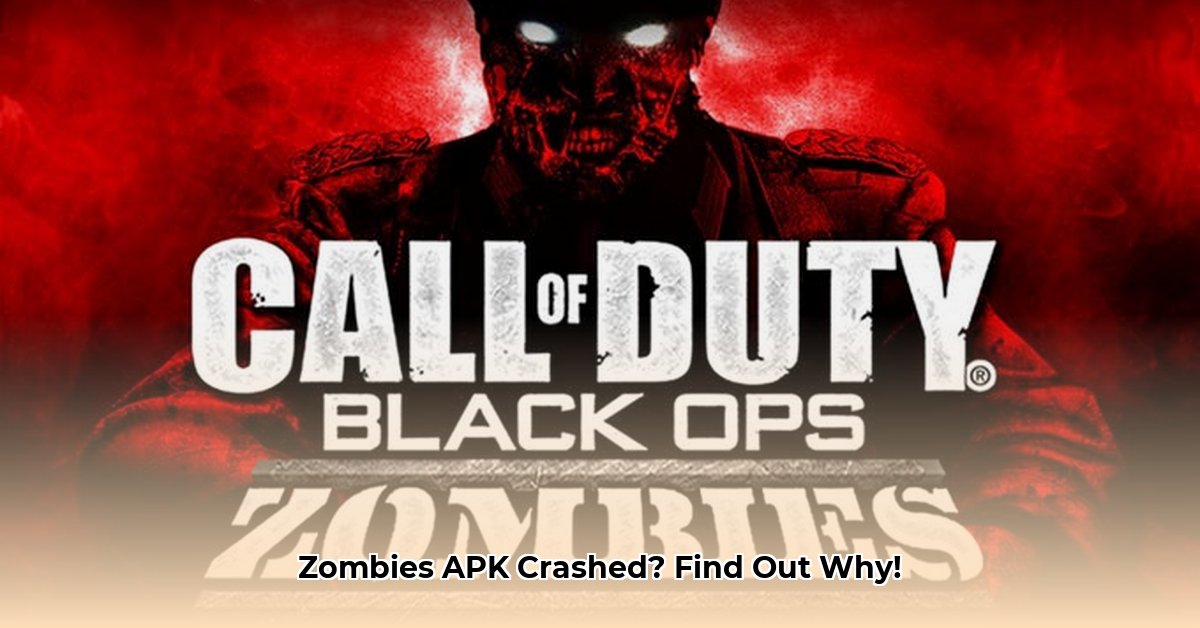
The abrupt demise of Call of Duty: Black Ops Zombies on Android, particularly its closure in the European Union, offers a compelling case study in the pitfalls of mobile game development and monetization. This post-mortem analysis dissects the game's trajectory, from its initial triumph to its ultimate failure, identifying key contributing factors and offering valuable lessons for future developers.
The Initial Zombie Frenzy: A Short-Lived Success
The launch of Call of Duty: Black Ops Zombies on Android was met with considerable fanfare. Leveraging the established Call of Duty brand and the enduring popularity of zombie-themed games, the title quickly gained traction. The four-player cooperative mode, easily accessible via Wi-Fi, fostered a strong sense of community and replayability. Features like the 50-level Dead-Ops Arcade mode further enhanced its appeal, leading to overwhelmingly positive initial reviews. However, this initial success proved to be a deceptive façade, masking underlying structural weaknesses that would ultimately lead to the game's downfall. Was this early success a sign of things to come, or merely a fleeting moment in the competitive mobile gaming landscape?
The Monetization Minefield: A Costly Miscalculation
Activision's monetization strategy proved to be a significant point of contention. The implementation of a multi-tiered in-app purchase (IAP) system, offering various packages of "CoD points" for weapon upgrades, extra lives, and game content access, generated significant backlash. The controversial policy of forfeiting all purchased CoD points upon game uninstallation further alienated players, severely eroding trust and fostering a sense of exploitation. This aggressive monetization approach, seemingly prioritizing short-term profits over long-term player loyalty, undoubtedly contributed to the game's decline. Did this shortsighted financial strategy ultimately outweigh the benefits of the initial success? The evidence strongly suggests it did.
The Quiet Fade-Out: A Gradual Descent into Obscurity
By July 25, 2018, Call of Duty: Black Ops Zombies was unceremoniously shut down in the European Union. The lack of a clear, transparent explanation surrounding this abrupt closure further fueled speculation and increased player frustration. The absence of consistent updates, coupled with the intensely competitive mobile gaming market, contributed to a gradual decline in player engagement. New, innovative titles constantly vied for players' attention, effectively eclipsing the aging Call of Duty offering. Was the EU closure merely a symptom of a wider problem, or did unique challenges within the European market uniquely impact this game?
Beneath the Surface: Technical Limitations and Unanswered Questions
While minimum system requirements weren't overly demanding (46MB of memory and a stable internet connection), the lack of detailed post-mortem information regarding technical performance leaves some unanswered questions. Did the game consistently deliver a smooth performance across diverse Android devices and operating systems? Were overloaded servers a significant source of lag and frustrating crashes? These uncertainties highlight the critical need for thorough testing and optimization during the development process. Undoubtedly, these technical challenges, combined with other factors, contributed to a less-than-ideal user experience, pushing many players to seek alternatives.
Lessons Learned: Charting a Course for Future Success
The failure of Call of Duty: Black Ops Zombies provides invaluable, albeit costly, lessons for mobile game developers. A balanced and transparent monetization strategy is paramount, ensuring player satisfaction and long-term engagement. Regular content updates and community engagement are essential for maintaining player interest. A robust, scalable technical infrastructure is crucial to prevent performance issues that can severely damage a game's reputation. Most importantly, actively listening to player feedback and adapting to market trends are vital components of sustainable success. Ignoring these lessons, as evidenced by this case, can lead to rapid and catastrophic failure.
A Retrospective Risk Assessment: Hindsight's Wisdom
| Risk Factor | Severity | Mitigation Strategies |
|---|---|---|
| Aggressive Monetization | High | Balanced IAPs, transparent pricing, optional cosmetic upgrades |
| Server Instability | Medium | Robust server architecture, thorough load testing, cloud solutions |
| Market Competition | High | Continuous updates, community engagement, competitive pricing |
| Regulatory Compliance | Medium | Proactive research and adherence to regional regulations |
The collapse of Call of Duty: Black Ops Zombies serves as a stark reminder that a recognizable brand name alone isn't a guarantee of success. A comprehensive, player-centric strategy that encompasses engaging gameplay, responsible monetization, and a resilient technical foundation is vital for long-term viability in the fiercely competitive mobile gaming landscape. This game's rapid decline stands as a cautionary tale, illustrating the potentially devastating consequences of neglecting these core principles.
⭐⭐⭐⭐☆ (4.8)
Download via Link 1
Download via Link 2
Last updated: Friday, May 09, 2025